You might be genetically disposed to obesity. Luckily, there are things that you can do to influence your body in positive and lasting ways.
Is obesity something that you can control, or is it genetic? The real answer lies somewhere in the middle. While genetics can influence our weight and many other tendencies, epigenetics – or how our lifestyles and environments interplay with our genes – has the biggest impact of all.
The good news is that even with genetics that seem to be working against us, we aren’t prisoners to our genes.
Can you spare 10 minutes a day? Then you can do this 7-Day Paleo Weight Loss Bodyweight Workout Challenge!
Click here to get your FREE copy!
How Your Genes Contribute to Obesity
Obesity is truly a global epidemic. As of 2016, more than 650 million people in the world were obese – or 13 percent of the adult population. (1) Obesity rates have more than doubled since 1980, so it would seem that lifestyle must play a bigger role in obesity than genetics since our genetics can’t have changed that much in 30 years, right? In the U.S. alone, more than one-third of adults are obese. (2)
While genetics themselves aren’t changing, gene expression can. (3) We all have protective and harmful genes in our bodies, and these can be flipped on or off like light switches. The factors that control whether a gene is active or turned off are largely controlled by the environment we live in, our lifestyles, our diets, and our overall health. (4, 5)
Since the 1980s, a lot has changed in our environment and lifestyles with increasing pollution, fast food consumption, stress levels, lack of sleep, and many other factors that could be turning off our protective genes and turning on negative genes, including those associated with obesity. (6) People can have genes that are prone to weight problems, but creating a preventive lifestyle can help offset that risk.
Obesity is rarely only caused by genetics, although some people may be more prone to body fat storage, food cravings, and depressive tendencies that can make a lack of desire to exercise harder to overcome. (7, 8, 9, 10)
For those people, focusing on food quality is more important than exercising more or eating less. (11, 12, 13, 14) This is because the foods that you eat can help to control your genes. Anti-inflammatory foods, like leafy greens and cauliflower, have a protective effect, while pro-inflammatory foods, like breads and sweets, can activate the genes that exacerbate weight issues.
Bottom line: A calorie isn’t a calorie when it comes to eating for weight loss or countering obesity. People can have genes that are prone to weight problems, but creating a preventive lifestyle can help offset that risk.
6 Ways to Lose Weight and Keep it Off for Good
Inflammation is at the core of many epigenetic expressions of genes that can contribute to weight gain or make weight loss hard. When you’re seeking to turn off fat-promoting genes and finding a healthy balance within the body, these factors are essential for maintaining a healthy weight.
1. Engage in Physical Activity

Physical inactivity can take a slight genetic tendency toward obesity and exacerbate it. (15) The human body is designed to move and be active, and when this doesn’t happen, certain biological processes can stagnate or become inefficient (like metabolism, digestion, and stress hormone regulation), making the body more prone to inflammation.
If you’re prone toward weight problems or struggle with obesity, there’s no way around the fact that movement of some kind is necessary for both weight loss and overall physical health. You don’t have to undertake marathon training or CrossFit to experience positive results, either. Walking for two to three hours a week total can be a great starting point for weight loss, improved digestion, and better sleep – all of which will help improve genetic expression. (16, 17, 18) Remember: The less you move, the less inclined you’ll be to begin exercising – so keep active!
2. Focus on Gut Health

Research continues to prove that almost everything is tied to the gut, including both weight and genetic expression. The gut microbiome – or the landscape of good and bad bacteria that reside within the intestines – helps to regulate fat storage and weight. (19) The gut is implicated as the starting point in a number of metabolic disorders and the development of weight issues and obesity. (20)
Obesity is characterized by constant, low-grade inflammation which is partially influenced by the bacteria in the gut. (21) When the good bacteria in the gut outnumber the bad, this can have a significant influence on which genes are expressed, and how the overall body functions – including weight, digestion, and metabolic health. Not only can the gut be a major cause of obesity, but it can also be one of the reasons why losing weight can be next to impossible for some.
Not only can the gut be a major cause of obesity, but it can also be one of the reasons why losing weight can be next to impossible for some. Unless the gut bacteria is overhauled by diet and lifestyle changes, attempts to lose weight may be unsuccessful. (22)
Repair damaged tissue in the gut by focusing on high-quality proteins with amino acids, like bone broth and collagen. Fermented foods, including kimchi and sauerkraut, and prebiotic foods like artichokes, garlic, onions, and asparagus also help to replenish the good bacteria and ensure that it will continue to proliferate and thrive.
Diets that contain lots of trans fats, artificial flavorings, and sweeteners, and other “junk” or refined foods don’t nourish good gut bacteria, but instead help the bad bacteria to thrive. (23) This can contribute to food cravings for all of the anti-gut foods you shouldn’t be eating, as well as an inability to shed pounds no matter how closely you count calories. Food quality matters, and unless the food is nourishing your microbiome, it won’t be supporting your weight loss efforts.
3. Get Enough Sleep

It’s impossible to get healthy – and lose weight – if you aren’t getting enough high-quality sleep. Prioritizing a good night’s slumber is an important avenue in weight loss and having healthy genes.
If you have the genes associated with weight problems, lack of good sleep can turn these genes on and further exacerbate the problem. (24) Getting less than seven to nine hours of sleep each night, or sleeping much more than that, can cause alterations in gut bacteria and genetic expression that can influence body weight.
4. Reduce Stress

Constant stress, even at low levels, influences weight and is often associated with obesity. (25)
While it can feel difficult to combat work and home stress, it’s essential to find healthy ways to cope instead of expecting it to disappear. The microbiome can also be related to increased stress if it isn’t healthy, so following the other tips in this section can have a natural impact on reducing stress levels.
Whether you participate in yoga, meditation, or therapy, finding a stress relief outlet that works for you will be a critical component of balancing your weight and changing how your genes express.
5. Drink More Water

While it might seem one of the most common pieces of advice, research shows that overweight individuals are typically not hydrated properly. (28) This can lead to an inability to shed weight, as well as increased inflammation levels. Dehydration can also influence appetite, cravings, sleep, and even mood.
So how much water do you really need? While the advice to drink six to eight glasses of water per day is widely circulated, there isn’t solid research to back that up. More convincing research indicates that gauging hydration level by the color of urine is a better and more individualized approach. (29) Urine should be pale yellow or nearly clear to indicate good hydration. If it is medium to dark yellow, you need more water. Certain foods or nutrients can alter urine color, like beets or vitamin B12 supplements, but for the most part, urine color is a good gauge of how much water is available to your tissues.
Water and hydration levels can not only influence things like constipation and digestive function, but it can play a role in how your genes and DNA express, making it a critical component of getting your epigenetic expression to be working for you and not against you. (30)
6. Find Supportive Meal Plan Coaching
Need some motivation? Join a coached program or Paleo meal plan group. Research shows that people who find social support have more success at weight loss than going it alone. (31) Online coached challenges have a strong success rate and have become popular in recent years thanks to convenience and affordability.
While there are thousands of weight loss programs abound on the Internet, finding the right one is crucial to your success. Do they over-promise? They probably will under deliver. Does it sound too good to be true? It probably is.
As someone who was obese for many years and then went on to become a nutritionist, I know that pairing weight loss efforts with a group setting can instantly improve your chances of completing the program and seeing real results.
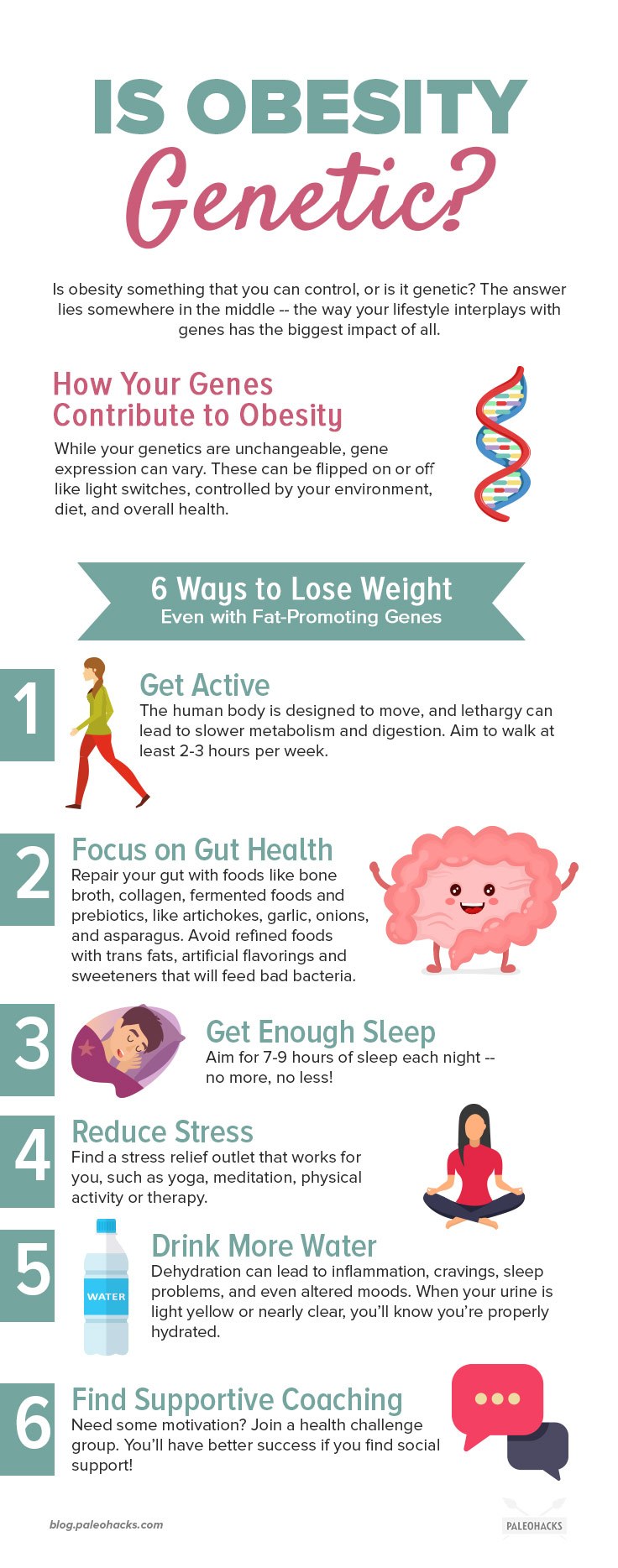
(Read This Next: 7-Day Paleo Natural Weight Loss Meal Plan)


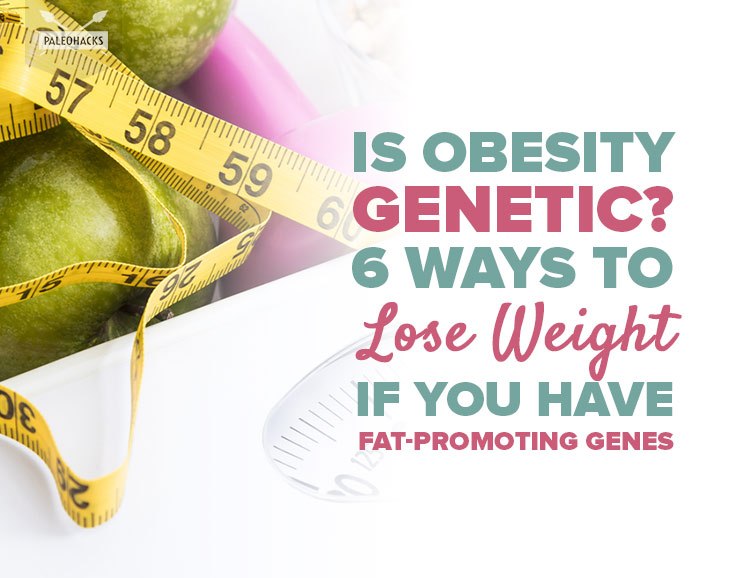
 17 Tasty Ways to Eat Turmeric for Dessert
17 Tasty Ways to Eat Turmeric for Dessert



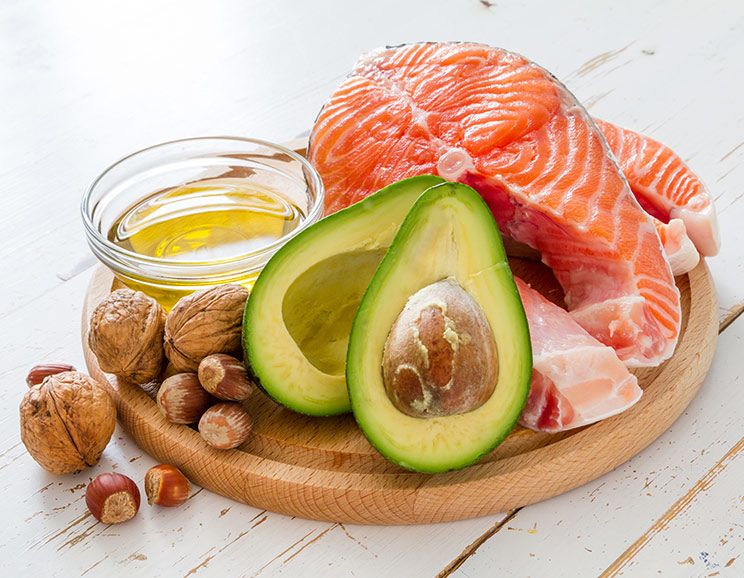
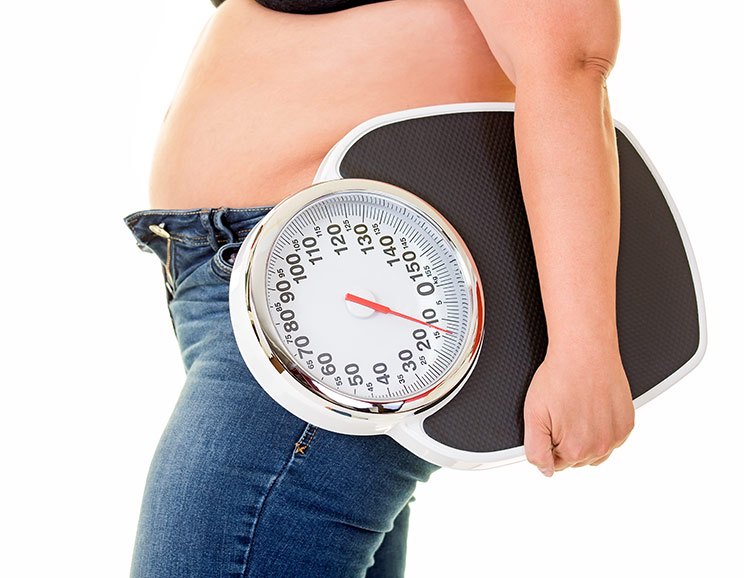
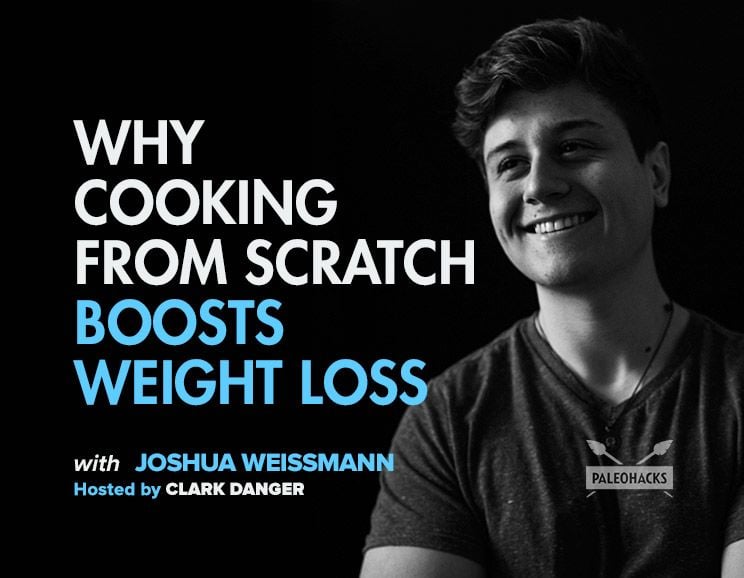

Show Comments